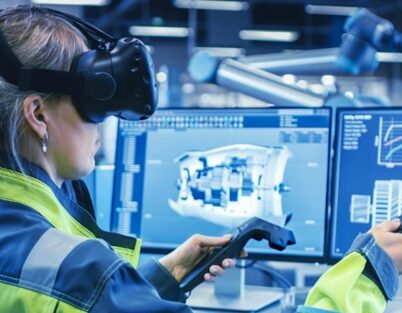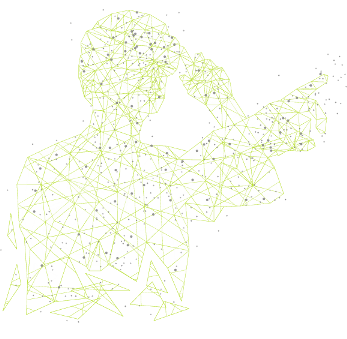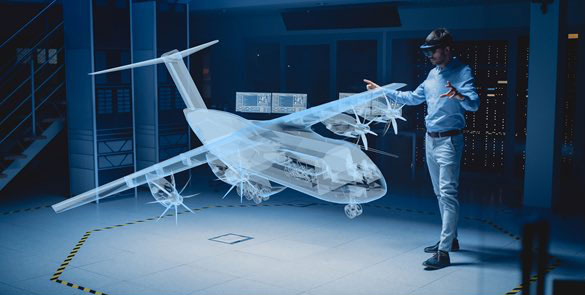3 Problems with Content Creation for VR based Industrial Training and How to Fix It

Introduction
In the world of industrial training, Virtual Reality (VR) comes as a game-changing technology. It addresses challenges with traditional on-the-job training and brings in a new era of immersive learning experiences. We present statistics to highlight its significant impact on industrial training. We also introduce an innovative approach to content creation that enhances the accessibility and adoption of this groundbreaking technology.
VR's Impact on Industrial Training - By the Numbers
Organizations leveraging VR witness increased productivity, coupled with a notable reduction in training costs & dependence on the availability of subject matter experts. Here are a few metrics that help explain how VR is revolutionizing industrial training:
- Learning Efficiency Amplified: VR training drives a remarkable 76% increase in learning effectiveness compared to traditional methods (Finance Online).

- Cost-Efficiency Unleashed: According to PwC’s study, VR training reaches cost parity with classroom learning at 375 learners and becomes 52% more cost-effective than traditional training at 3,000 learners.

- Safety Enhanced: Capgemini reports a potential reduction in injuries in high-risk jobs through VR training, significantly contributing to safety in sectors like construction and manufacturing.
Scalability Challenges with VR Training Content
While the adoption of VR in industrial training brings immense benefits, traditional process of VR content creation suffers with several challenges. The technology grapples with concerns such as security, content-software integration, and multi-device compatibility. These challenges limit widespread adoption of the technology in large Industrial organizations.

Traditional packaging of VR content raises security issues, making large-scale deployments impossible. This challenge stems from the bundling of all 3D content with the application binary. This makes enterprise IT controls impossible, complicating the IT security clearance process.

Creation of VR training experiences requires custom software development to define user interactions with the virtual model. Even simple interactions like plant tours require software development, resulting in significant investment (both time and cost) for even basic experiences. This also adds a layer of complexity to the content creation process.
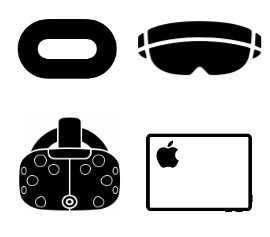
The ingrained nature of VR experiences tied to specific devices results in compatibility challenges. For instance, if a VR experience is developed for a specific device like Quest 2, running the same content on future devices, such as Vision Pro or even Quest 3, would require significant "porting" efforts. This means adapting and modifying the content to function smoothly on new hardware, adding an extra layer of complexity, and limiting scaling to new devices and use cases. The core issue stems from the use of gaming engines like Unity that have created dependencies between VR content software logic and specific devices.
Overcoming Scalability Challenges: Democratising VR for Industrial Training

To address the scaling challenges of VR training, the following need to be addressed:
- Security Enhancement: Tackling security concerns requires separating application software from 3D content. This will ensure secure storage of content on a robust server platform limiting access to authenticated users only. This streamlines deployments and addresses IT security issues effectively.
- No Code Content Creation: Streamlining content development, and a user-friendly interface would eliminate extensive coding & software customization for VR training experiences. Content creators should be able to effortlessly import 3D models, define viewpoints, add voiceovers & other interactions. This will substantially reduce the time and costs associated with this effort. This will also enable future updates to the content without developing on the original developer.
- Future-Proofing Content: As VR and AR platforms evolve, content seamlessly transitions without recreation. Updates become straightforward, allowing for autonomous content management.
Exxar: The Gamechanger for VR Content
Exxar emerges as a groundbreaking solution that transforms the landscape of VR content creation and deployment, addressing the following key points:
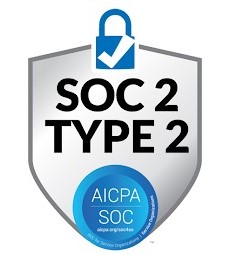
Enhanced Security Protocols:
Exxar enhances security by separating application software from 3D content. Stored securely on a robust server platform, it enables IT teams to apply access controls and monitor usage with automated tools. Exxar meets strict security standards and complies with SOC2 Type 2.

Simplified Content Creation
Exxar provides a simple no-code user experience, allowing users to import 3D models, define viewpoints, add voiceovers, specify interactions & results. This eliminates the need for intricate software development efforts for basic VR experiences, such as creating a virtual tour of a plant, as well as advanced step by step Industrial procedures. There's no coding required. This streamlines the content creation process, significantly reducing both time and cost.

Future-Proof Content
The rigid connection between VR applications and specific devices often poses challenges when adapting content to new hardware. Exxar breaks free from this limitation by ensuring that content created on the platform is future-proof. As new VR or AR platforms are released, the same content seamlessly transitions without the need for extensive porting efforts. Updates to the content can be executed directly, eliminating dependencies on software developers and promoting flexibility in content evolution.
Conclusion: A New Era of Industrial Training
While the potential of VR in industrial training is undeniably groundbreaking, our journey doesn’t end with the marvels it brings. The real game-changer lies in tackling the content creation challenges head-on. By streamlining the development process, addressing security concerns, and ensuring adaptability to evolving hardware, we pave the way for a future where VR training is not just immersive but also seamlessly integrated into industrial workflows. Exxar stands as the beacon of this transformative journey, offering a revolutionary approach to content creation that eliminates barriers, setting the stage for a new era in industrial training.

